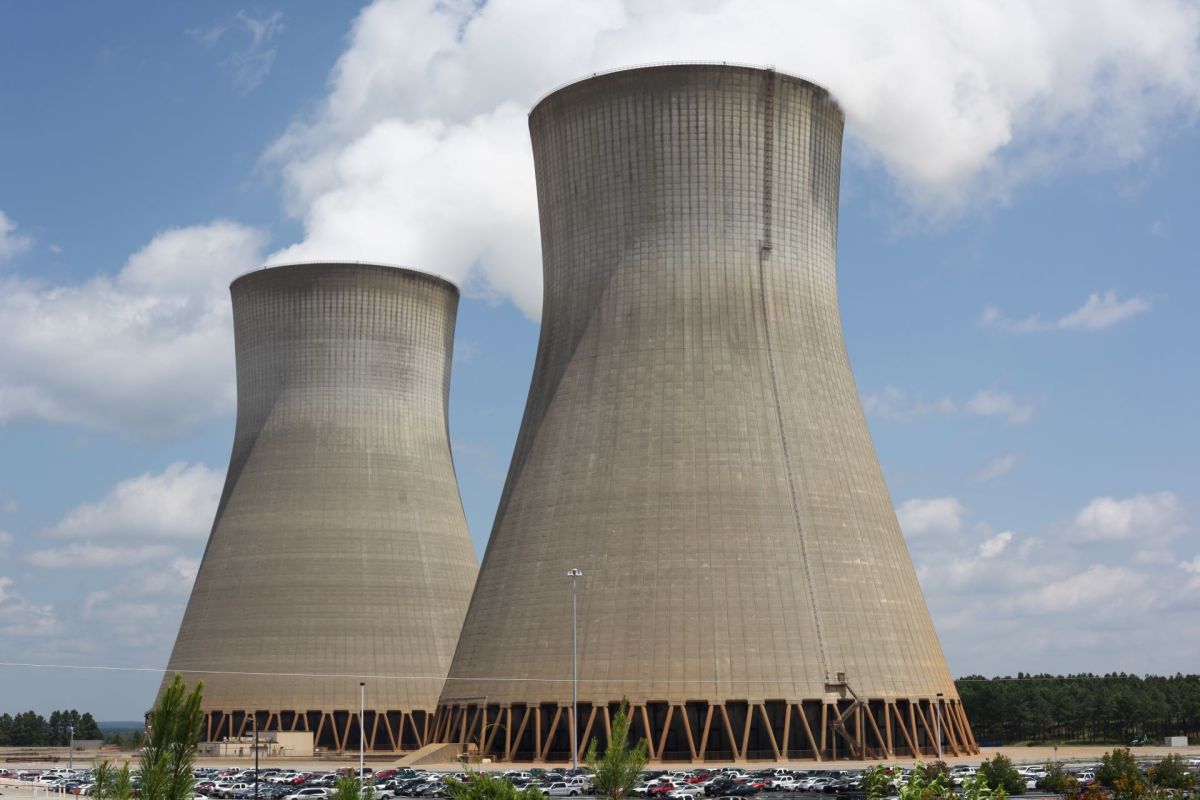What if I told you that we can produce clean energy 24 hours a day, seven days a week? It sounds like a fantasy, but it's not – and it's happening at Georgia's Plant Vogtle.
Late last week, operators began loading fuel into the newly completed Unit 3 of the Plant Vogtle nuclear power plant. This was after numerous hurdles which delayed the reactor's operational debut. As the first new nuclear facility built in the United States in more than thirty years, this is a major climate and energy win for the state of Georgia.
With a fourth reactor under construction expected to be completed late next year, Plant Vogtle is on track to provide clean, abundant energy for more than one million Georgian homes and businesses across the state.
Nuclear energy has a complicated history in the U.S. – and around the world – but despite what some will argue, Plant Vogtle Unit 3 coming online is a victory for climate action and U.S. energy security.
Clean, abundant nuclear energy must be a critical part of our energy and climate agenda. Here's why.
Nuclear energy is currently the only carbon-free source that can generate electricity 24 hours a day, seven days a week. Unlike other clean sources, like wind or solar, nuclear reactors operate at very high generating capacity. Plant Vogtle, for instance, will run at an average of 90% capacity for up to 80 years, while wind and solar operate at an average of about 30% depending on weather conditions.
Additionally, nuclear energy takes far less land than renewables. To generate the equivalent amount of energy that Vogtle will, we would need to install 42,000 acres of solar power or approximately 1.7 million acres of wind power.
Even so, we should still have wind and solar as key parts of our clean energy transition. In fact, deploying them simultaneously with nuclear power reduces emissions and ensures energy security because nuclear power can fill in wind and solar generation gaps with clean energy, rather than energy produced by fossil fuels.
Nuclear energy is so important because it's as clean as wind energy and even more reliable than fossil fuels. It's the base load fuel of the future.
Nuclear power is commonly compared to other clean sources of energy. After all, it currently supplies the U.S. with 50% of our clean energy, and one in five homes or businesses in the U.S. get at least some of their electricity from a nuclear power plant. But in many ways, it's also superior to traditional sources like coal or natural gas – and not just because of emissions.
A single uranium fuel pellet – which is about the size of a pencil eraser – is the same as one ton of coal, 149 gallons of oil, or 17,000 cubic feet of natural gas in terms of energy.
While nuclear reactors are expensive to build – Units 3 and 4 will clock in at about $30 billion – nuclear energy day-to-day generation is vastly safer and cost-competitive compared to energy generated from coal or natural gas.
Plant Vogtle Unit 3 hasn't had an easy road to coming online, despite all the benefits the nuclear energy industry boasts. Onerous regulations and delays in construction have caused concern in the surrounding community, but it's clear that the benefits this project will provide far outweigh any drawbacks. We are set to have cleaner, more secure energy because of Plant Vogtle.
Benji Backer is the president and founder of the American Conservation Coalition (ACC) and contributor to The Cool Down. Follow him on Twitter @BenjiBacker.
Follow The Cool Down on Instagram and subscribe to our newsletter.








